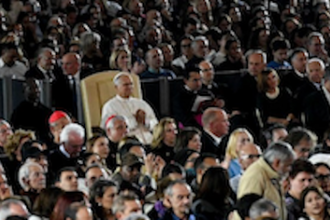Facebook, Fake News, Fakebook

At least once a week I find myself taking to Facebook to ask those in my timeline to 'please stop sharing fake news'. This fake news can range from people sharing a Happy Birthday message to Pope Francis in July [when his birthday is in December] or those sharing a story about how clicking and liking a photo will see Facebook donating a dollar or a euro to support a family with a sick child [they won't].
From the silly to the serious, I see fake news in my timeline every single day. I try to do my bit to gently correct or in some cases to clearly call out the person posting the fake news.
I also find myself having to block chain messages that come into my inbox on Facebook Messenger. People share these messages and forward them without questioning where they have come from or considering how the content might affect the person receiving them.
Facebook in particular seems to be perpetually in the grip of an epidemic of fake news and foul chain messages. Facebook feels more like Fakebook every day.
This type of fake news sharing happens all the time within personal Facebook pages but increasingly I am seeing fake news being shared without question on official pages belonging to parishes and other organisations. This is an unacceptable trend that we need to be mindful of if we are the person looking after any social media pages for a parish, diocese or other Church organisation.
But who are the biggest culprits when it comes to spreading the fake news? Is it automated online bots or humans spreading fake news?
A piece of research published in January this year in the journal Science said that older people are almost four times more likely to have shared fake news on Facebook than the younger generation.
On average, Facebook users over the age of 65 shared nearly seven times as many articles from fake news domains as those aged between 18 and 29, researchers from NYU and Princeton found in the study. The researchers analysed the Facebook history of about 1,750 American adults, cross-referencing links they had posted with lists of known fake news publishers.
This particular finding is backed up by the demographic data: with over-65s, who came to the internet later in life, sharing more than twice as many fake news articles as those in the second-oldest age group.
The research authors wrote: "As the largest generation in America enters retirement at a time of sweeping demographic and technological change, it is possible that an entire cohort of Americans, now in their 60s and beyond, lacks the level of digital media literacy necessary to reliably determine the trustworthiness of news encountered online.
So please do think before you tweet and fact-check before you Facebook! I recommend HoaxSlayer.com as a really good source for checking for fake news stories and scams on social media.
Brenda Drumm is Communications Officer with the Catholic Communications Office of the Irish Catholic Bishops' Conference. This article is published in the March 2019 issue of 'Intercom Magazine'.


















